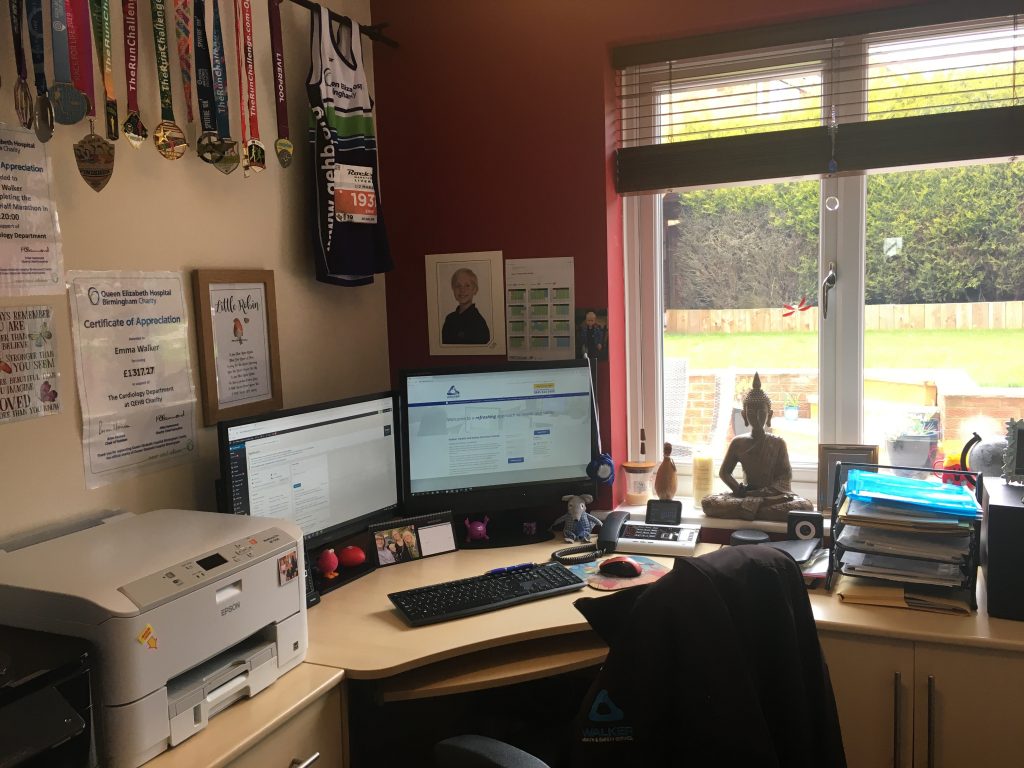
RIDDOR and COVID-19
Most deaths at work are reportable under the Reporting of Injuries, Diseases and Dangerous Occurrences Regulations 2013, whether they involve an employee or another worker, such as a contractor.
Coronavirus has added a new dimension to this, with the HSE making it clear that it would expect death to be reported under RIDDOR where it was probable that exposure occurred at work. Some have reacted to this, saying that it poses as many questions as it answers. But, if we leave to one side the reporting issue, it is nevertheless clear that this is most likely to affect front-line care workers both in the NHS and in care homes. We can now also say with some certainty how inspectors are likely to approach such investigations.
The investigation of a death at work is a sombre matter and inspectors approach it with gravity. That said, the process of investigation is fundamentally the same as for less serious incidents.
Where the death was believed to have been caused by Covid-19, you can expect investigators to focus on the precautions you took, and the extent to which they were effective.
One key difference between the investigation of a major accident and that of a fatality is that in the latter case, there is likely to be an inquest.
Separate enquiries would be made by the police, usually in the form of a ‘coroner’s officer’, so that witnesses can be identified and statements taken. In the case of a death at work, it is also foreseeable that the police will investigate to see if there is any case to answer under manslaughter legislation, which operates in parallel to health and safety requirements.
At the time of writing, no cases have been taken in relation to Covid-19, so recognise that, like the rest of us, investigators will be feeling their way in dealing with unprecedented circumstances and may make mistakes. Co-operating with them while protecting your own interests is the balance to strike.
If you have any queries, please contact us.

Beating the winter blues – When workers are SAD
As staff enter the latest COVID-19 lockdown and this coincides with shorter, darker days, managers may find it useful to share information on how best to beat symptoms of the winter blues — or seasonal affective disorder (SAD) — wherever employees are working.
According to the NHS, symptoms of SAD can include:
•a persistent low mood
•a loss of pleasure or interest in normal everyday activities
•irritability
•feelings of despair, guilt and worthlessness
•feeling lethargic (lacking in energy) and sleepy during the day
•sleeping for longer than normal and finding it hard to get up in the morning
•craving carbohydrates and gaining weight.
For some people, these symptoms can be severe and have a significant impact on their day-to-day activities. Workers should consider seeing their GP if they are struggling to cope and the doctor will most likely assess their mental health, asking questions about their mood, lifestyle, eating habits and sleeping patterns, plus any seasonal changes in their thoughts and behaviour.
It is thought that lack of sunlight might stop a part of the brain called the hypothalamus working properly, which may affect the production of melatonin and serotonin (the neurotransmitters responsible for sleep and mood) as well as the body’s internal body clock.
A range of treatments are available for SAD but the most common treatments include:
•lifestyle measures ― getting as much natural sunlight as possible, exercising regularly and managing stress levels
•light therapy, where a special lamp called a light box is used to simulate exposure to sunlight
•talking therapies such as cognitive behavioural therapy (CBT) or counselling
•antidepressant medication such as selective serotonin reuptake inhibitors (SSRIs).
Eating well can help too: people should drink lots of water and eat foods containing omega-3 fatty acids (such as salmon and mackerel) and amino acids (such as eggs, nuts, fish, whole grains and spinach). These foods are readily converted into serotonin, which may help to boost mood.
Search out previous blogs for advice. How to help someone with SAD.
Contact us for further information.

Ways to improve your forklift truck safety this winter
Forklifts come with risks no matter what the time of the year. However, when the winter brings cold, wet and icy weather, the risks can significantly increase. Kelly Friel is the Digital Product Manager from PPE and tool retailer, Zoro. Here, she explains how you can improve your forklift truck safety during the colder months.
If you work in construction or warehousing, forklifts can be a lifeline to your daily duties. But, while they can be incredibly useful in shaving down labour time and removing the need for workers to move heavy materials, they can pose a lot of health and safety issues. According to latest statistics reported to the HSE, some of the main causes of worker fatality include being struck by a moving vehicle (20%), trapped by something collapsing or overturning (15%), and contact with moving machinery (11%) — all of which are possibilities when working with, or around, powerful machinery like forklifts (Workplace Fatal Injuries in Great Britain, 2020).
And, with winter on the horizon, the conditions on your construction site or yard could soon become treacherous. Not only does this directly affect forklift truck drivers, but also the workers around them. Here, I’ll be sharing my top tips for improving your site’s forklift truck safety during the colder months.
Knowing how to properly operate a forklift, and how to deal with any problems that arise, will be key to safety on the site for everybody. With slippery surfaces, reduced lighting and strong winds to contend with during winter, your forklift truck drivers may need some additional training, particularly if you’re planning to add extra safety measures around the site, such as a new route for machinery. Similarly, ensuring they know exactly what checks to carry out at the beginning of each shift, and are aware that they’ll need to give the forklift some time to warm up before operation, will be imperative to safe and optimum usage.
As well as this, you also might want to impose some restrictions on forklift usage. For example, while it might not be productive to limit the hours the forklift can be used, limiting the speed at which it can travel after a certain time and in particular conditions can improve the safety on site for everyone. You could even implement some speedbumps to ensure drivers stick to these limits and are warned for when coming up to particularly dangerous zones.
If you’re unsure on the additional training you’ll need to give, finding a consultancy that offers guidance and health and safety training, like Walker Health and Safety Services, will ensure you’re identifying and managing all potential risks for your workers and site visitors.
Before you let your workers carry on their duties, it’s imperative that you have done the necessary checks and changes to your forklift to ensure it’s fit for purpose during the winter. This could include investing in some durable forklift covers that will shield it from wind, rain, ice and other elements, which could impact its usual functioning. These covers can vary from metal cabs to plastic canopies, and the type you choose will depend on where your forklift is stored and, consequentially, how much extra protection and shelter it’ll need.
For construction sites, you’ll want to consider changing the tyres to ones that are suitable for challenging weather conditions. These tyres have greater traction, so won’t be as phased by wet and icy flooring around your site, reducing the chances of your forklifts skidding and causing damage or injury. For machinery that regularly goes between indoor and outdoors, you might even want to consider buying some pneumatic tyres that handle slippery floors better. These are typically best for forklifts that are lifting heavyweight materials, such as bricks, so you may need to add some tyre chains and studs to offer extra traction.
It’s important to remind workers that during these wetter months, it’s key for them to clean the forklift down after every shift. This will help to remove any build ups of dirt and debris. And, by drying the forklift’s body before storing it, they’ll also be able to spot and get rid of any rust. Each forklift will have specific care guidelines, so make sure your workers are following the daily and weekly checks outlined in the operator’s manual to keep your forklifts in great condition.
As an employer, it’s a legal requirement for you to adhere to the advice given in the Personal Protective Equipment at Work Regulations (1992). So, you no doubt already supply your workers with a sufficient amount of protective clothing when they’re on site. However, with new health and safety risks arising in the colder months, it may be necessary to take a look at what PPE is missing to protect your staff from these problems, including cold stress.
For example, it is not uncommon for cold weather to wreak havoc on your workers’ body temperatures, meaning they can have trouble regulating it when spending time outside. For this reason, it’ll be important to ensure your workers are wearing lots of thin layers rather than thicker ones, so they can choose when to take off or add layers, and can do so comfortably. The clothes your workers wear will need to stand up to the elements, so investing in some weather- and windproof materials, such as Gortex and nylon, will help them to keep warm when out on the job. Similarly, providing thick, insulated gloves and leg warmers will be key.
As the evenings draw in earlier, and we have reduced hours of daylight, it’ll be incredibly important to ensure the high-visibility PPE you offer are more than sufficient. High visibility clothing is split into three categories, with class 1 offering the most basic level of protection and class 3 offering the most. For your construction site in winter, you’ll want to invest in class 3 for everybody, even if you’ve increased extra lighting around the site. This is so forklift truck drivers can be seen and so can other workers around the site, to reduce chances of injury or fatality.
You’ll need to look beyond the safety of your forklift and ensure that your site is also safe. For example, you may need to invest in some extra lighting for the darker hours your workers will be working in. These could be floodlights or tower lights depending on the size of your site and how much additional lighting you’ll need.
If you’ve set up separate routes for pedestrians and your forklifts to travel around, you’ll need to sufficiently highlight which path is for who. So, additional signage will be key.
When the floor is particularly wet and slippery, remembering to grit it regularly, including at the beginning of each working day and a few times during the day, to reduce the amount of accidents for workers and forklift operators.
Protect your forklift operators and the rest of your workers from injuries and fatalities by taking the time to think about the risks associated with cold weather and how to tackle these.
Contact Walker Health and Safety Services if you require further information.
Guest Blogger – Kelly Friel from Zoro.

Scaffolding
Many people are now feeling the full force that comes from a second national lockdown! The COVID-19 outbreak has ripped through many industries and caused major financial and medical unrest across the entire country. Even though people who work in construction are still able to operate during these new measures, it’s so important to think about how health and safety needs to be elevated substantially to safeguard both customers and staff. In the world of scaffolding, the individuals involved work outside and have the capacity to keep well away from other people. This still doesn’t detract from simple factors that need to be considered for safe and practical working. So, here are some things to think about if you are working in scaffolding during the new lockdown.
Almost every single day, people are going to be handling equipment and certain parts of scaffolding in order to gain access to various parts of a building. A simple deterrent against spreading anything through touching would be to wear protective gloves, but sanitising should also be brought into play on a regular basis. A deep clean should be conducted at the start of every day and the end. If you think certain things have been handled too much, then clean them down until you are satisfied they have been cleansed enough for future use.
If you think certain tasks can be handled by less people than you would usually call upon, then definitely look into this. A reduction of people you have milling around a building means you are less likely to see the virus spreading. Any projects that do require input from a lot of people could maybe look into staggering the shifts. This means the same manpower is utilised each day without having too many scaffolders operating at the same time.
People working in scaffolding will know that inspections are already a major factor behind any work. Should you require further assistance, you can call the necessary Building Control in order to establish best practices across your site. You also need to be careful if you have small-scale scaffolding for things like warehouses and workshops. A platform scaffold is going to be used on a frequent basis as people try to reach things above the ground. This could end up becoming a hotbed for the virus so perhaps only designate a handful of people to any ladders or platforms.
At the moment, the construction industry is able to carry on, but we all know this could change very quickly. There may come a point where certain areas across the country are deemed unsafe even for outside work as the virus continues to spread. You also need to ensure any staff working are clued up with the rules as even just one minor slip up could cause a wave of major issues. Health and safety has never been so important! So, think methodically and always act in the best interests of people who may be operating during what are unprecedented times.
Contact us if you would like further information.
Guest post written by B3 Scaffolding.

Office
As lockdown looms in England for a second time this year, we wanted to let you know that we’re here for you. We will all be working from home answering your calls and emails.
As before the effects of working from home will be minimal, as we will continue to work our regular hours and phone calls into the business will be transferred and answered by us working from home.
If you have any question, please don’t hesitate to contact us.
We thank you for your patience and understanding at this time.